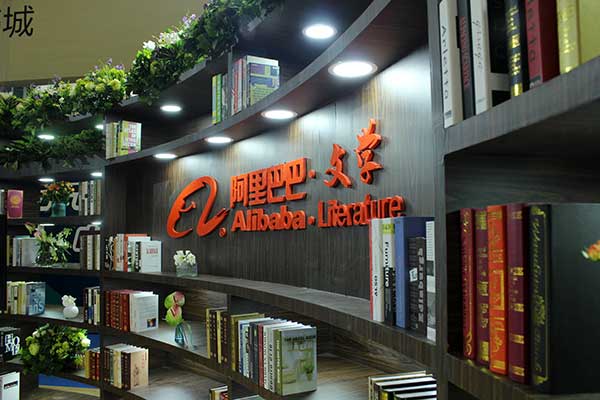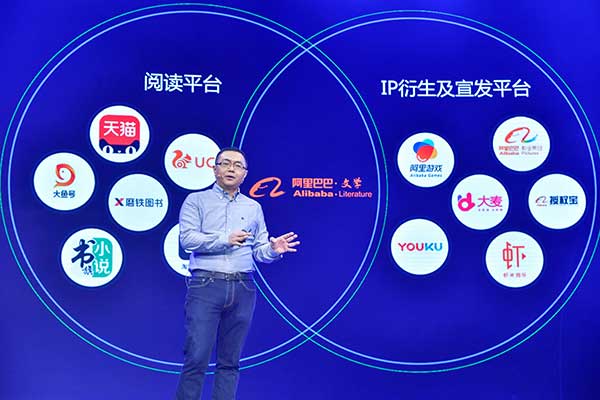Experts see online literature entering a fresh phase
By Yang Yang | China Daily | Updated: 2018-01-26 07:28

China's online literature scene is changing, according to experts who spoke at an event hosted by Alibaba Literature in Beijing recently.
Alibaba Literature was launched in April 2015 to source original content for the Alibaba Digital Media and Entertainment Group.
The media and entertainment group is a branch of Jack Ma's Alibaba Group that seeks to develop online literature and derivative products such as TV plays, movies, cartoons and video game adaptations based on a story, a character or other elements.
At the end of 2017, the market value of China's pan-entertainment sector was 580 billion yuan ($91.5 billion), according to a report by the China Internet Network Information Center, but the market value of online literature was only 9 billion yuan.
The huge gap shows how valuable good content is, says Yu Qian, chief executive officer of Alibaba Literature.
"We are entering a new phase when it comes to online literature," he says.
In 1997, a website called Under the Banyan Tree marked the birth of China's online literature genre. Its openness and interactivity offered writers a comparatively free space to write and communicate with readers.

For a decade, people wrote and read on personal computers. Then, mobile internet took off in 2007. And people got used to reading on mobile phones.
This attracted more people to online literature, which made it a mature industry.
"Now, an era centering on IPs is upon us," says Yu. "IP means valuable content or things that have fans," he says.
And in recent years, the concept of IP has gone viral in China and online literature has become a gold mine.
On Nov 8, China Reading Ltd under Tencent, the biggest online literature platform, was listed on the Hong Kong Stock Exchange. And reflecting the promising prospects of the sector, its share price rose 63 percent on the first day and is rising steadily.
Literary works on the platform such as Coiling Dragon by Zhu Hongzhi are also gaining popularity with readers on an English language website called Wuxiaworld.
Despite the genre's prospects, there are problems such as poor quality, vulgarity and plagiarism.
Zhou Yun, the editor-in-chief at Alibaba Literature, says that there are three trends in the online literature sector that are hampering its growth.
"First, the number of online novel readers is decreasing," he says. "And this is not because people don't like online novels, but because they now have more ways to entertain themselves."
He also says that listed companies now show that their profits mainly come from reader subscriptions rather than advertisements or copyright sales.
To resolve such issues, Zhou says that platforms for online literature, video-streaming, video games, apps and browsers should cooperate to share users and focus on better content, improved distribution and adaptations.
As for the third issue, he says that questions are now being asked about the content.
"Maybe we can seek inspiration from realistic topics and other genres such as erciyuan (a Japanese term referring to anime, manga and video games)," he says.
























